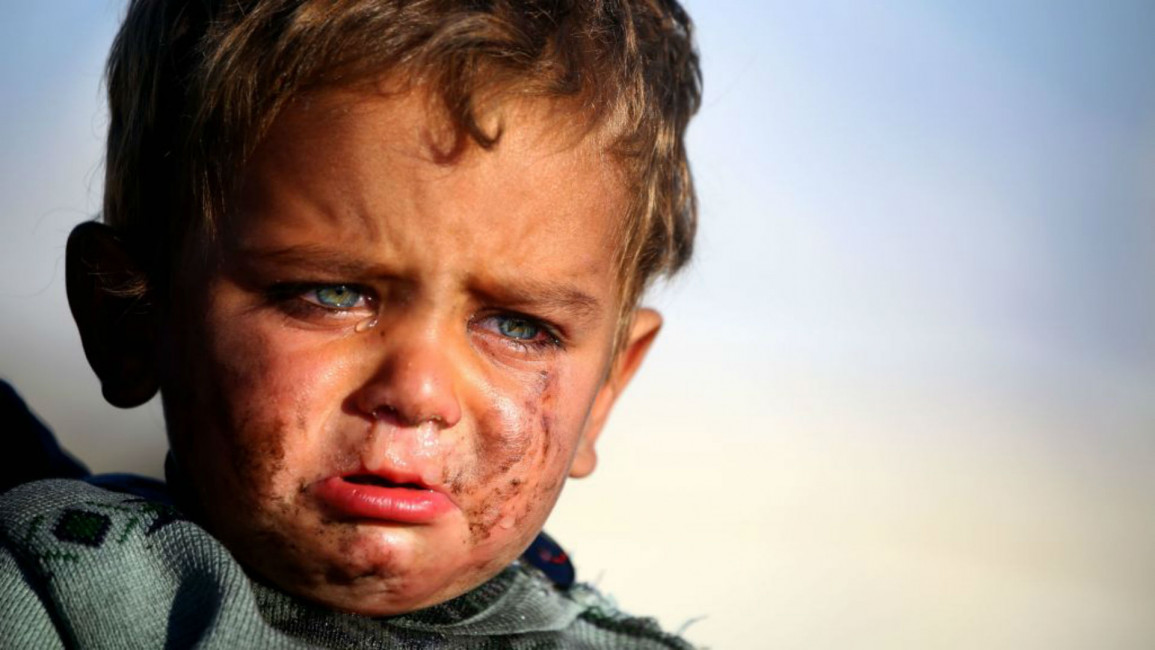
The international community has failed Syria's children once again
A fresh chemical attack has turned the town of Khan Sheikhun in Syria's Idlib province in a new killing field.
At least 72 people were killed and dozens wounded in Tuesday's gas attack. This latest use of chemical weapons tears up the US-Russia chemical disarmament deal in Syria, and highlights the international community's relinquishment of its "Responsibility to Protect" principle - with serious long-term repercussions on the international scene.
At the scene of the attack, witnesses reported people - including at least 11 children - were fainting and vomiting, with foam in the mouth. The Union of Medical Care and Relief Organizations (UOSSM) also put the death toll at more at more than 100 people, adding that the figure was likely to rise. The hospital that was treating the chemical attack victims was later hit by a rocket which destroyed part of the building.
Russia's defense ministry denied having carried out any air strikes at the time of the attack, while a spokesman for its Defense Ministry, Major-General Igor Konashenkov said Syrian warplanes had struck an "insurgent" storehouse containing toxic substances to be used in chemical weapons.
Pro-government media also quoted Syrian military sources who insist that the attack was due to an explosion at an al-Qaeda chemical weapons factory in Khan Sheikhun. Yet it is the Syrian military alone, which has both the motivation and the ability to carry out an aerial attack on any such factory.
The Khan Sheikhun attack falls within a long series of incidents involving the Bashar al-Assad regime's use of nerve agents against rebels. UN investigators said last year that the Assad regime had used chlorine in at least two separate instances in 2014 and 2015.
 |
This latest use of chemical weapons tears up the US-Russia chemical disarmament deal in Syria |  |
In addition, Human Rights Watch reported in February that Assad forces had used chemical nerve agents at least eight times between November and December last year on rebel-held eastern Aleppo killing at least nine people, including four children.
In August 2013, a chemical weapons attack in the Ghouta area near Damascus, which killed more than 1,400 civilians, including hundreds of children, was attributed by American intelligence to the Syrian military.
The Khan Sheikhun attack this week has several important implications.
First it is a bold statement of impunity on the part of the regime, against the backdrop of an international meeting on Syria held today in Brussels.
The use of nerve agents in Khan Sheikhun also underlines that Assad has the will and capability to continue to resort to weapons of mass destruction in his war on the opposition.
In addition, the regime's use of chemical weapons demonstrates that either the Syrian state lied when it joined the Chemical Weapons Convention in 2013, or that it resumed its previously renounced manufacturing capability.
Lastly, it tears up the deal made between the US administration of former President Barack Obama and Russia, which was supposed to strip Syria of its chemical arsenal in 2013, after the Ghouta massacre.
 |
It is the Syrian military alone, which has both the motivation and the ability to carry out an aerial attack on any such factory |  |
The Khan Sheikhun incident is another war crime on the part of the Assad regime, underlining the international community's failure to uphold its Responsibility to Protect promise.
The Responsibility to Protect is a 2005 international security and human rights standard, addressing the international community's failure to prevent genocide, war crimes, ethnic cleansing and crimes against humanity.
The war in Syria has resulted in the death of almost half a million people - over half of them civilians. The failure to enforce this standard in Syria, means giving free reign to abusive dictators, setting another dangerous precedent.
Yesterday, the UK, France and the United States were pushing for a Security Council resolution that condemns the attack, and orders the Syrian government to provide international investigators with information on the air attacks.
But as previous chemical attacks in Syria have shown us, the world will probably sit out this new crime in silence.
Mona Alami a non-resident fellow with the Atlantic council covering Middle East politics with a special interest in radical organizations. Follow her on Twitter: @monaalami
Opinions expressed in this article remain those of the author and do not necessarily represent those of The New Arab, its editorial board or staff.




